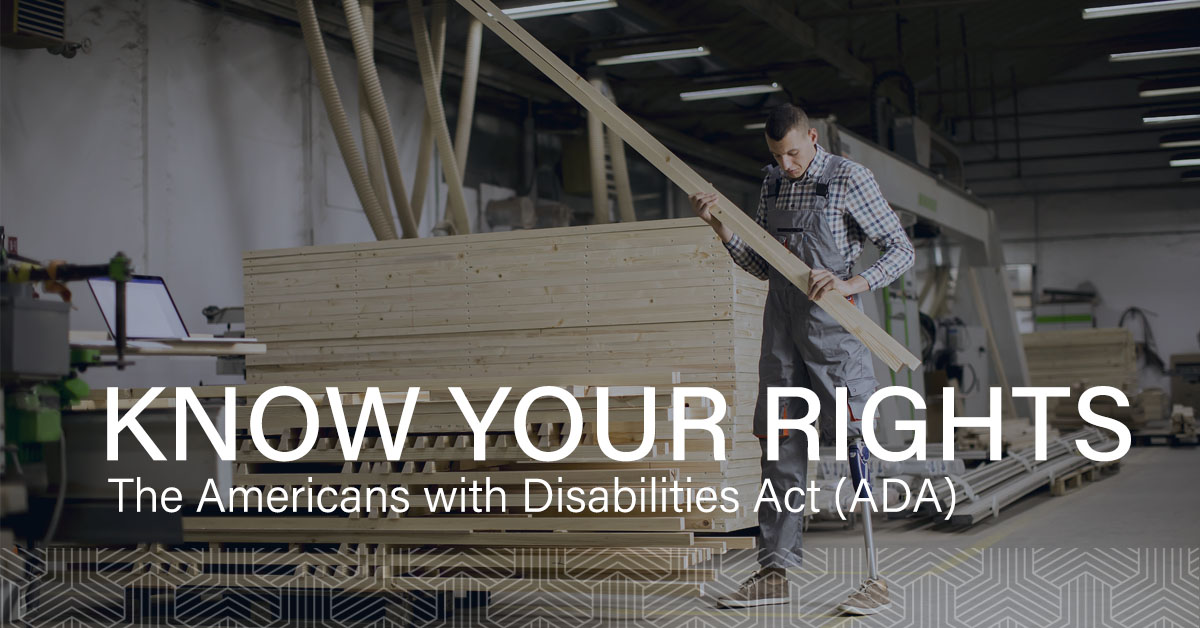The Americans with Disabilities Act (ADA) makes discrimination against people with disabilities illegal. The Act applies to employment, transportation, public spaces, communications, and access to federal, state and local government programs and services. If you have a disability and are qualified to do a job, the ADA protects you from job discrimination. The ADA also protects you if you have a history of a disability or if an employer believes you have a disability, even if you do not.
The ADA defines a disability as a physical or mental impairment that substantially limits a major life activity. These activities include hearing, seeing, speaking, walking, breathing, performing manual tasks, caring for oneself, learning, or working. To be protected under the ADA, you must have, have a record of, or be regarded as having a substantial impairment.
If you are otherwise qualified for the job with or without a reasonable accommodation of your disability, the ADA protects your job from discrimination. First, you must satisfy the employer’s requirements for the job, such as education, employment experience, skills, or licenses and certifications. Second, you must be able to perform the essential functions of the job with or without reasonable accommodation. Essential functions are the main duties of a job that you must be able to perform with or without the help of a reasonable accommodation. An employer cannot refuse to hire you because your disability prevents you from performing duties that are not essential to the job.
An employee may also assert an ADA claim if an employer does not provide a reasonable accommodation for the employee’s disability. A reasonable accommodations are changes or adjustments to the workplace that help an individual with a disability do their job and enjoy the benefits afforded to employees without disabilities. An employer is not required to provide an accommodation that is difficult or expensive to implement.
Making a claim of discrimination under the ADA
The ADA protects both employees or applicants from discrimination by private employers, employment agencies, labor organizations, or labor-management committees. The Equal Employment Opportunity Commission (EEOC) enforces the ADA by investigating and mediating accusations of discrimination by employees or applicants. You must file a charge of discrimination with the EEOC prior to any action being taken in court.
To establish that an employee has been discriminated against, an employee needs to show they have a qualifying disability by applying a three step test. (1) Courts must determine whether the condition claimed is a physical or mental impairment. (2) Courts identify the major life activity affected by the disability. (3) Courts determine whether the impairment substantially limits this major life activity.
If you believe you have been discriminated at work due to a disability, it is very important to contact an experienced attorney as cases are very fact specific and need to be carefully evaluated in order to protect your work rights.
Authored by: Karen Munoz, Partner
